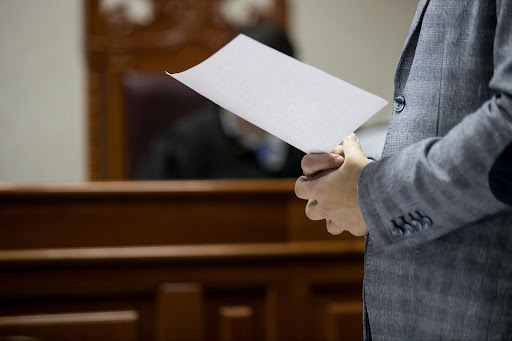
There are many things about the journey through the incarceration and release process that aren’t fun. And for many defendants, getting enough money to pay for bail or a bail bond is one of them.
Many individuals who find themselves arrested and jailed lack the financial resources to meet the often substantial bail amounts. Even securing a less expensive bond can prove to be a struggle. Fortunately, bail bond agencies offer a solution in the form of collateral.
What Is Collateral in the Bail Bonds Process?
Collateral refers to assets or property pledged as a form of security to ensure the defendant’s appearance in court. By providing collateral, the defendant or their co-signer demonstrates a commitment to fulfilling their obligations under the bail bond agreement.
The collateral may be forfeited to cover the outstanding bail if the defendant fails to appear. Simply put, collateral helps to safeguard the bail bond company’s financial investment and ensures that the defendant complies with all court appearances.
The most common forms of collateral accepted in bail bonds are:
- Real estate: includes properties such as houses, land, or commercial buildings. The value of the real estate is evaluated based on its current market worth and equity.
- Vehicles: Cars, motorcycles, boats, or other vehicles can be used as collateral, provided they hold sufficient value. The vehicle’s condition, make, model, and resale value are considered.
- Valuable items: Jewelry, precious metals, or other high-value assets can be used as collateral. Their worth is assessed based on market value and quality.
Note: Most bail bond agents won’t take property as collateral if it’s rented out or the owner is still making mortgage payments. And if the defendant gets out of jail but doesn’t show up for their court date, the bail bond company can foreclose on the property to get their money back.
How Do You Post Bail Bond Collateral?
Posting bail bond collateral involves a straightforward process to secure the release of a defendant from jail. First, you should contact a licensed bail bond agent who will guide you. Together, you will discuss the collateral options they accept.
The bail bond agent will assess the proposed collateral’s value to ensure it covers the required bail amount. Once the collateral’s value is determined, you must provide necessary documents and information, such as ownership proofs, registration certificates, or appraisal reports.
After agreeing on the terms and conditions for using the collateral, both parties will sign a collateral agreement. Once the bail bond agent is pleased with the terms of the arrangement, the defendant will be released from jail.
How Is Collateral Value Determined?
The value of the item used as collateral for a bail bond is a key factor in determining how much the bond will be. In most cases, the bail bond agent will evaluate the collateral’s worth by considering its current market value, condition, and liquidity.
For example, the value of a piece of real estate may be based on what it is worth on the market right now. On the other hand, a car may be valued based on how it looks and how much it could be sold for. Some assets, like art or jewelry, may need to be appraised by a professional to get an exact value.
A professional appraisal can be critical to ensure that the collateral’s value is right and that the bond is enough to cover the defendant’s bail. An accurate appraisal can also help to avoid disputes or legal challenges related to the value of the collateral.
Collateral Release Process
Collateral used to secure a bail bond is typically returned to the person who posted it once the defendant has fulfilled their legal obligations, such as appearing in court for all scheduled hearings. However, the conditions and timelines for collateral release can vary depending on the specific terms of the bail bond agreement.
Sometimes the collateral may be returned as soon as the legal process ends. In other cases, the release process can take weeks or even months.
The bail bond agency takes on financial risk in arranging the defendant’s release. Therefore, they may be allowed to keep the collateral if the defendant breaches their release or fails to appear in court. So, you must read the bail bond agreement carefully to understand the conditions for collateral release.
Considerations to Keep In Mind When Posting Collateral
There are several risks and considerations to keep in mind when posting collateral. The most significant risk is losing the collateral if the defendant does not show up to court or if they break the terms of their bail bond.
Also, consider the collateral cost, such as appraisal fees or the interest charged by the bail bond agent. It’s crucial to work with a reputable bail bond agent and carefully evaluate the potential risks and benefits of using collateral before proceeding.
What Are the Alternatives to Collateral in the Bail Bonds Process?

If you are unable or unwilling to provide collateral for a bail bond, alternative options are still available to secure a defendant’s release from jail. Some common alternatives include:
- Co-signers or indemnitors: A trusted individual, such as a family member or friend, can co-sign the bail bond. They take on the responsibility of ensuring the defendant’s compliance with court appearances.
- Payment plans: Bail bond agencies offer flexible payment plans, allowing the defendant or their loved ones to make regular payments over time, making it more manageable to cover the bond amount.
- Financing options: Some bail bond companies partner with financing institutions to provide loans specifically for bail bonds, helping individuals secure release while arranging for manageable repayment terms.
Discuss these alternatives with a reputable bail bond agent to determine the most suitable option for your specific situation.
Get a Reliable Bail Bond Agent Through A-Affordable Bail Bonds
Collateral is an integral part of the bail bonds process. It allows defendants to secure their release even when they don’t have the financial resources to pay for bail outright.
At A-Affordable Bail Bonds, we understand that facing legal troubles is never easy. Fortunately, you don’t have to face them alone. We are here to offer you the support and resources you need to get through this challenging time. Contact us today to meet all your bail bond needs across Minnesota and Fargo.


